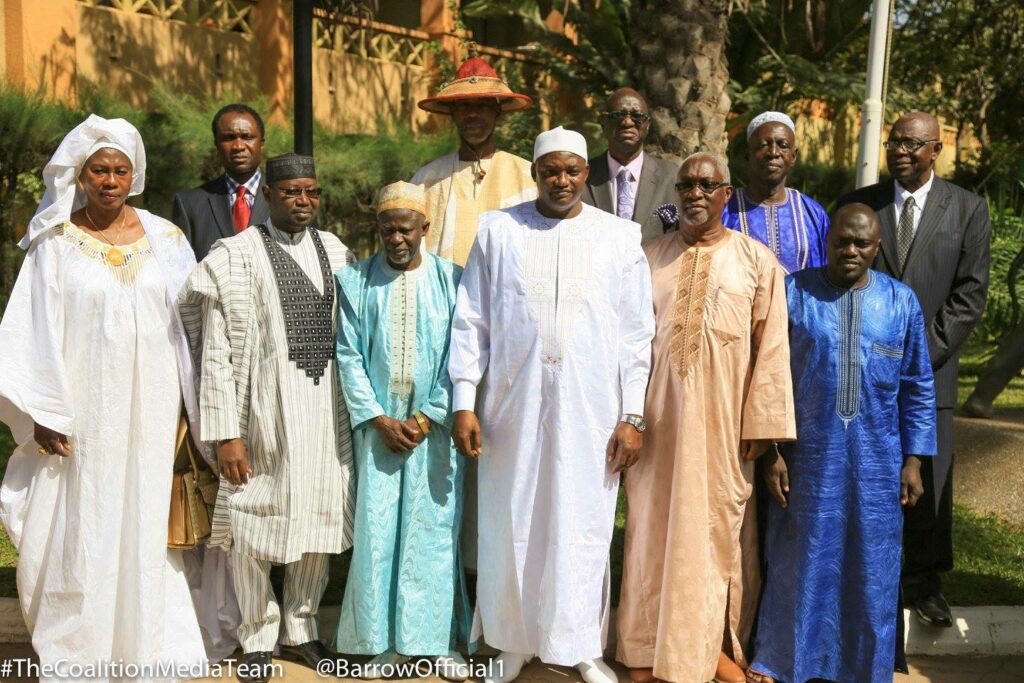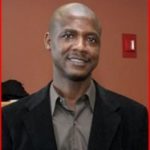
As Norwegian Nobel Committee awarded Ethiopian Prime Minister and the Tunisian National Dialogue Quartet award Nobel Peace Prize:
The Gambia fetched the wrong firewood with this democracy and the post-dictatorship rule was all wrong. The person who brings ant-infested firewood home invites lizards to his home. Now, the home of the Gambia has been taken over by all sorts of reptiles. These creepy creatures change their form and appearance and yet remain in control of all of the vital parts of the home. No matter the fumigation by the house owner, the creatures remain—it is an almost hopeless situation.
The main reason Ethiopian Prime Minister Abiy Ahmed won the 2019 Nobel Prize for Peace was because of his peace-making efforts with Eritrea and rapprochement with Somalia and Djibouti – all within the first year of taking office! The 43-year old millennial took office in 2018 and alongside seeking co-existence with his international neighbours, he also set out to “heal the nation”.
To become a Nobel Peace Laureate winner is a well-deserved recognition. It is a long and difficult process to achieve democratic reforms in a country that has been subjected to a very difficult situation but can be done right provided it has been done with active support from civil society.
It is easy enough to find absurdities in any list of formal awards–e.g., Pearl Buck and William Golding won the Nobel Prize, while Tolstoy, Joyce, and Proust did not–but, with the Oscars, absurdity has been more the rule than the exception. Yet what prevented the grand 2016 Opposition Party Coalition not even considered being nominee for the Noble Peace Prize, the new category of awarding for sticking to peace and democratic principles.
A disparate coalition of Tunisian unionists, employers, lawyers and human rights activists has won the 2015 Nobel peace prize for helping to prevent the Jasmine revolution from descending into chaos like the 2016 Coalition partners that ousted 22 years of despotism in the Gambia. The Gambian 2016 Coalition and the Tunisian Quartet were a disparate entity, made up of groups that did not necessarily see eye to eye, historically, they shared the same goals and vision of ending despotism and restoration of democracy and good governance. So, there had been a kind of peace-making within the prodemocracy groups before it could perform its function.
The Tunisian National Dialogue Quartet was given the award by the Norwegian Nobel committee, beating an array of high-powered nominees including Angela Merkel, the pope, the US secretary of state, John Kerry, and his Iranian counterpart, Mohammad Javad Zarif.
Why the Nobel committee considered PM Ali of the prestigious Nobel Peace in 2019. He started off much like the many leaders of Africa start off when the ascend into power: Offering lofty-sounding platitudes and promises. Some even promise to end “ufisadi” and “unify the nation’s many fractured tribes” and “remediate historical injustices”; this on top of stadiums across the land and laptops for all school children.
However, the former Ethiopian intelligence officer not only followed through on his promise to end repression of the press and of the opposition, he ended a two-decade-long conflict between his country and neighbouring Eritrea.
PM Ali Abiy also freed political prisoners and actively sought gender equality in his cabinet. Ethiopia’s President and Chief Justice are both women – HE Sahle-Work Zewde and CJ Meaza Ashenafi. And unlike some African leaders who force their best and brightest into exile or hunt them down and eliminate them, along with any meddlesome/unco-opted members of the opposition, Abiy has done the exact opposite.
December 1,2016, Presidential elections in the Gambia was widely hailed and described as an indication of great hope for democracy in Africa and particularly for the Gambia, which President Yahya Jammeh had ruled with an iron fist for 22 years. That election was also perhaps the most important political development in The Gambia’s electoral politics in 54 years, the first change of government through democratic elections. The broad-based inter-party dialogue that birthed the 2016 Coalition succeeded in establishing countered the spread of violence in the Gambia and its function was therefore comparable to that of the peace congresses to which Alfred Nobel refers in his will.
The 2016 Coalition worked very hard to achieve the result it did. This was not a matter of elegant words or a certain stance. The Coalition leadership spent all-nighters end to end, cajoled, taught, helped and threatened political actors to produce a solution to the situation of political crisis in which they were mired.
The 2016 Coalition worked very hard to achieve the result it did. This was not a matter of elegant words or a certain stance. The Coalition leadership spent all-nighters end to end, cajoled, taught, helped and threatened political actors to produce a solution to the situation of political crisis in which they were mired.
The Coalition had secured the approval of the Gambian p population at large for the constitutional process that led to democratic elections. The Coalition paved the way for a peaceful dialogue between the citizens, the political parties and the authorities and helped to find consensus-based solutions to a wide range of challenges across political and tribal divides. The Gambian coalition had helped bring the country back from kleptocracy to democracy and had made a decisive contribution to the building of a pluralistic democracy. The Gambia and Tunisia all suffering some of the same symptoms of brutal dictatorship.
President Adama Barrow was the product of 2016 Coalition of opposition parties who provided the platform for the people’s yearning for change. Adama Barrow became the symbol of the people’s hopes, and of freedom from Jammeh’s tyrannical rule that was benchmarked by its brutality, love of witchcraft and human rights abuses. The 2016 Coalition was seen in the country as a patriotic duty for sticking with democratic principles. The Coalition enabled the democratic process to go ahead, it was a political crisis that could have led to civil war.
The Ethiopian Prime Minister sought out the country’s best and brightest who had fled abroad to flee assault from the country’s previous autocrats and/or a moribund economy dragged down by its corrupt/inept leadership. The head of the country’s election board, the equivalent of the Gambia’s Independent Electoral Commission, was once a political prisoner who sought refuge in the US. The newly minted Nobel Laureate asked Birtukan Mideksa to return home from America and chair the National Election Board. A Gambian equivalent would be Adama Barrow asking Joe Sambou to chair the IEC!
Like many African countries, Ethiopia has many ethnic groups living side-by-side all within the same borders. And like any other African countries, ethnic strife is but a demagogue or a misstep away. On the other hand, Abiy Ali has not only verbalized being the “leader of all Ethiopians” as many a-demagogues promise upon seizing or coming to power, he has actively reached out to the country’s minority groups including the Somalis, Tigrayans, Sidamas, Gurages, Wolaytas and Hidayas.
It would be interesting to see an analysis of the man’s cabinet to see if it indeed represents the “Face of Ethiopia” and not of Ali’s ethnicity; if it protects the minorities from the “tyranny of the majority” that Gambians who support the incumbency crow/gloat about.
Notwithstanding and to a large extent, Abiy has not only been a peacemaker domestically, he reportedly got the Saudis and Emirates to support his mediation between the two sides in Sudan i.e. the then-Omar Bashir-led incumbency and the opposition. So while the authoritarian Bashir was eventually forced out of power by a youth-led uprising, the ever-present spectre of a brutal pushback from the incumbency that almost always controls the levers of violence against the demonstrators/opposition that parts of Kenya have seen and saw back in 2017 was averted thanks, in part, to Aiby’s peace-making efforts.
A September 2019 piece on the World Economic Forum (WEF) website titled “Ethiopia is Africa’s new growth engine – here’s why” only adds to the sheen of Ahmed Aiby’s two-year-old premiership.
To be clear, Ethiopia has challenges. The country, like many of its African neighbours, is battling corruption (Corruption Perception Index – CPI – of 34 vs. the Gambia’s 37 and Rwanda’s 56).
However, it has benefited from socio-political stability that has in turn propelled its economy to double-digit growth rates over the last decade.
This world-leading economic growth rate has kept an appreciable number of the country’s 105M employed/earning a living. It also bears repeating that the newly minted Nobel Laureate has actualized some major campaign promises that has prolonged his honeymoon well beyond the standard one hundred days (3 months) usually accorded incoming administrations.
This is particularly true given the near-identical socio-economic and political factors shared by the Gambia and Ethiopia: – Youthful potential, possible privatization of state-owned enterprises, promising start-up ecosystem, strategic location between Europe and Asia. Even throwing in the faux “social stability” wrought on by the near-two-year-old “Coalition/ Tactical Alliance Massallah” – another factor identified in the WEF piece mentioned in this piece.
However, the Gambia’s transition, this democratic outcome is far from certain, threw the country into political uncertainty.” Everything is tied up, and well tied up”. The coalition faces deep-seated legacy of politically driven ethnic divisions; and a centralized patron-clientelist system with weak, unaccountable, and unresponsive government institutions. Changing this system was not easy, especially for a tenuous political coalition, inexperienced in governing and confronted by an entrenched political class and a frustrated population with unrealistic lofty expectations.
It was not soon to tell how this transition will end during the assessment and whether reforms will stall. The Gambia’s past demonstrates that these windows do not remain open for long as engrained practices take over and the government assumes the attributes of the past.
Where else competent incorruptible leadership has been the difference between the Gambia and another society on the verge of economic take-off. Again, a hearty congratulations to PM Abiy Ahmed Ali for an award seemingly well-deserved.
By Alagi Yorro Jallow











Recent Comments